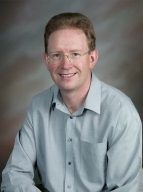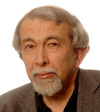Cambridge and India
Drug Discovery and Biochemistry
Biomedical research gives scientists the platform to create sophisticated new drugs that will act with great precision. Research into monoclonal antibodies - discovered in Cambridge by George Kohler and Cesar Milstein - has revolutionised treatments for cancer. These are the so-called 'next generation' treatments for life-threatening conditions.
An explosion in understanding of the molecular circuits controlling normal and diseased cells has identified many potential targets for the latest medicines. A multidisciplinary initiative, the Cambridge Molecular Therapeutics Programme (CMTP), directed by Professors Ashok Venkitaraman and Tom Blundell, seeks to pioneer methods for the discovery and development of next-generation drugs.
CMTP brings together expertise in physical, chemical and biomedical sciences to develop novel approaches to drug discovery. The programme welcomes partnerships with commercial collaborators.
Professor Chris Abell
Department of Chemistry
 Professor Abell's research, in the area of biological chemistry, is strongly interdisciplinary involving enzymology, organic synthesis, protein crystallography, molecular biology, and scanning probe microscopy.
Professor Abell's research, in the area of biological chemistry, is strongly interdisciplinary involving enzymology, organic synthesis, protein crystallography, molecular biology, and scanning probe microscopy.
Expertise: enzyme mechanism; early stage drug discovery; Astex Therapeutics spin-out founded with Professor Sir Tom Blundell and Dr Harren Jhoti.
India links: research collaboration into new TB treatments with Astra Zeneca R&D India in Bangalore. [Homepage]
Professor Shankar Balasubramanian
Department of Chemistry
Professor Balasubramanian's research is focused on nucleic acids and employs the principles of chemistry and the molecular sciences to address questions of importance in biology. Projects will provide scope for a diversity of intellectual and experimental approaches that include organic synthesis, combinatorial chemistry, molecular biology, biophysics and cell biology.
India links: hosts researchers from India.
[Homepage]
Professor Sir Tom Blundell FRS FMedSci
Department of Biochemistry
 Professor Blundell's research is focused on structural biology of cell regulation, structural bioinformatics and applications to drug discovery and medicine. He co-founded Astex Therapeutics which has oncology drugs in early stage clinical trials in USA and UK. He was Chairman of the Royal Commission on Environmental Pollution (1998 to 2005) and President of the UK Biosciences Federation between 2004 and 2008. He is non-executive Chairman of BBSRC.
Professor Blundell's research is focused on structural biology of cell regulation, structural bioinformatics and applications to drug discovery and medicine. He co-founded Astex Therapeutics which has oncology drugs in early stage clinical trials in USA and UK. He was Chairman of the Royal Commission on Environmental Pollution (1998 to 2005) and President of the UK Biosciences Federation between 2004 and 2008. He is non-executive Chairman of BBSRC.
India links: collaboration with Indian scientists including Professor M Vijayan and N Srinivasan at Indian Institute for Science (IISc), Bangalore; Dr R Sowdhamini at National Centre for Biological Sciences Bangalore; and Dr K Guruprasad at Centre for Cellular and Molecular Biology in Hyderabad; working with Astra Zeneca India through EU collaboration on drug discovery for TB; in 2008, Professor Blundell gave the Ramaseshan lecture at AstraZeneca India Pvt Ltd., he was Ramachandran Professor at IISc and gave the Ramalingaswami Memorial Lecture at the Jawaharlal Nehru Centre for Advanced Scientific Research, as well as lecturing at the University of Madras, Amrita University and Madurai Kamaraj University.
Professor Blundell is a Fellow of the Indian National Science Academy and the Third World Academy of Sciences.
[Homepage]
[Visit to IISc, Bangalore, July 2008]
Dr Karen Lipkow
Department of Biochemistry
Dr Lipkow is a Biologist at the Department of Biochemistry and a member of the Cambridge Systems Biology Centre. Her research integrates cellular architecture and signalling by modelling and experimentation.
India links: collaboration with Dr Upinder Bhalla at National Centre for Biological Sciences (NCBS), Bangalore.
[Homepage]
Professor Ashok Venkitaraman
Medical Research Council's Cancer Cell Unit

Human cancer cells almost always contain abnormal chromosomes, yet the connections between chromosomal instability and carcinogenesis are poorly understood. Professor Venkitaraman's research aims not only at understanding how cells maintain normal chromosome structure and number and why maintenance breaks down in cancer cells, but also to translate this knowledge to improvements in cancer diagnosis and treatment. With Professor Sir Tom Blundell, he has established the Cambridge Molecular Therapeutics Programme (CMTP).
India links: Christian Medical College & Hospital, Vellore.
[Homepage]
[News story: Prestigious Indian honour for Cambridge scientist]
- In this section
- Drug Discovery and Biochemistry
- Neuroscience
- Stem Cells and Genetics
